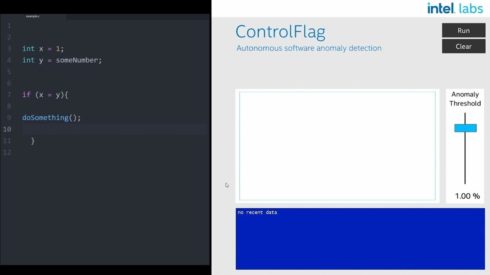
Intel’s newly released ControlFlag is a machine learning programming system that autonomously detects errors in code.
A recent study estimated that of the $1.25 trillion the IT industry spends on software development every year, 50% is spent debugging code. Intel hopes the new solution will significantly reduce the amount of time and money required to evaluate and debug code.
In addition, the company explained the software required to manage heterogeneous architecture is becoming increasingly complex and more difficult to find software programmers who have the expertise to correctly and securely program across the diverse hardware.
Intel hopes the solution will address the amount of time, money and skills that is required to evaluate and debug code.
“Debugging is expected to take an even bigger toll on developers and the industry at large,” Intel wrote in its announcement. “When fully realized, ControlFlag could help alleviate this challenge by automating the tedious parts of software development, such as testing, monitoring and debugging.”
ControlFlag includes machine programming bug detection capabilities, a fusion of machine learning, formal methods, programming languages, compilers and computer systems.
It also operates through anomaly detection through which ControlFlag learns from verified examples to detect normal coding patterns and identify the anomalies in code that are most likely to cause a bug, the company explained.
“A key benefit of ControlFlag’s unsupervised approach to pattern recognition is that it can intrinsically learn to adapt to a developer’s style. With limited inputs for the control tools that the program should be evaluating, ControlFlag can identify stylistic variations in programming language, similar to the way that readers recognize the differences between full words or using contractions in English,” Intel wrote.






